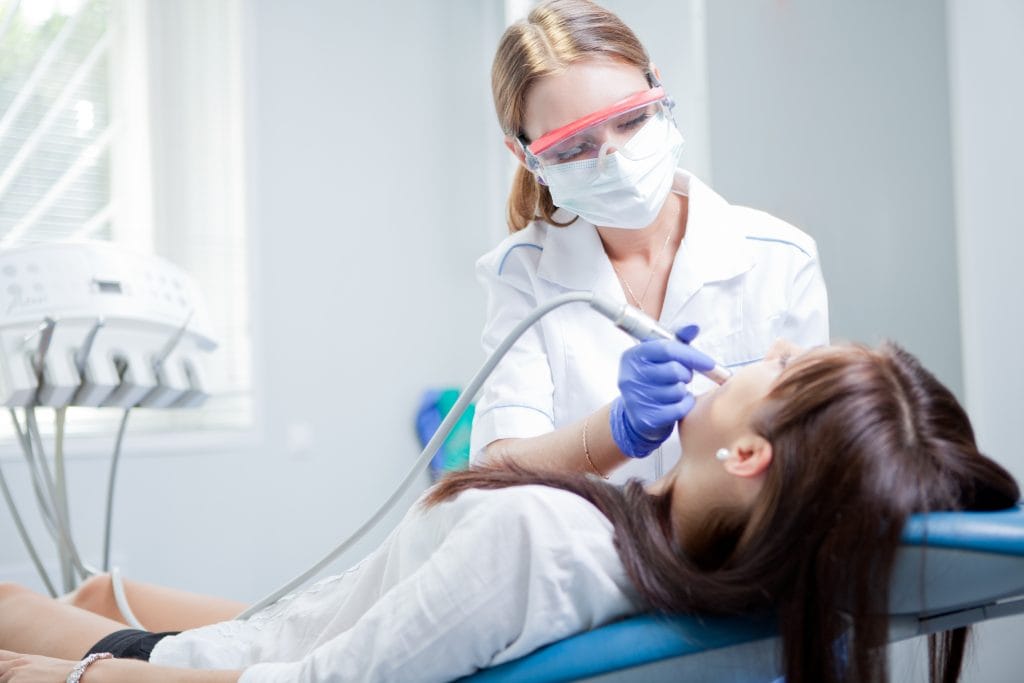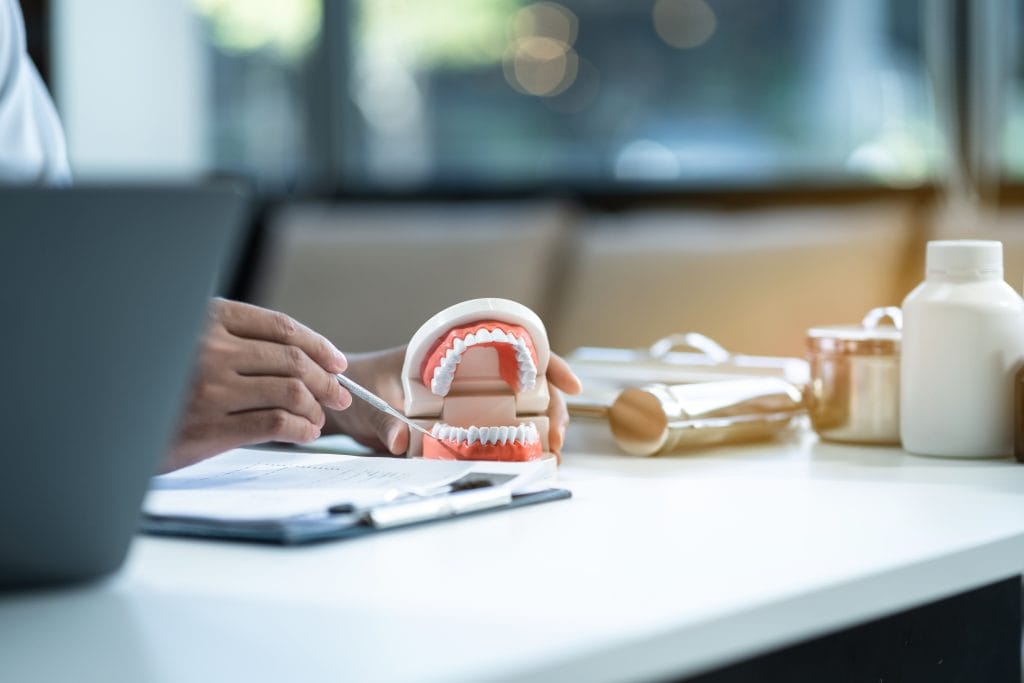Last updated on September 23rd, 2024 at 09:08 pm
 For the most part, we dentists as a group are concerned with how we are perceived by our patients. We try many things to generate goodwill and referrals—e.g. having a state of the art, spotless office, matching uniforms for the staff, a friendly and welcoming atmosphere, etc. Many step this up a notch with things like fresh squeezed orange juice, espresso, movies on demand a patient can watch during their procedure on video glasses, etc. There’s no lack of evidence that we, for the most part, try to impress our patients and generate word-of-mouth referrals.
For the most part, we dentists as a group are concerned with how we are perceived by our patients. We try many things to generate goodwill and referrals—e.g. having a state of the art, spotless office, matching uniforms for the staff, a friendly and welcoming atmosphere, etc. Many step this up a notch with things like fresh squeezed orange juice, espresso, movies on demand a patient can watch during their procedure on video glasses, etc. There’s no lack of evidence that we, for the most part, try to impress our patients and generate word-of-mouth referrals.
We could all debate (for some time) on how much impact any of these things have on goodwill and word-of-mouth. That being said, the one thing that I’ve seen which can kill patient goodwill faster than almost anything else is:
MAKING YOUR PATIENTS WAIT!
Don’t make your patients wait. Not even ten minutes. I have talked to thousands of dentists over the years and the number of them that have no concern about arriving at the office late, working through lunch or going home as much as one or two hours late is alarming. And I’ve heard all the justifications:
 · “I always have to wait when I go to my ____________ (medical doctor, chiropractor, optometrist, etc.)”
· “I always have to wait when I go to my ____________ (medical doctor, chiropractor, optometrist, etc.)”
· “We often run behind but it’s usually no more than ____________(some amount of time they believe is tolerable)”
· “People are used to waiting in line at ______________(Starbucks, the grocery store, etc)”
· “It’s a sign that we are popular and busy.”
· ______________(Fill in the blank with your favorite one)______________
I could go on but in the end, all these justifications represent is: poor management. And while this may be a tough pill to swallow—I can’t think of a more direct or honest way to frame this concept.
When you run late, regardless of what you might be thinking, what you’re actually communicating to a patient (customer) is:
· “Our time is more important than yours.”
· “We don’t care about your time.”
· “We are more important than you.”
· “We are poorly managed and have no idea of what to do about it.”
· “We really don’t need more new patients because we can’t efficiently handle the ones we have.”
(I can think of many more but by now I’m sure you get the point)
So, what am I trying to say?
There is nothing good that comes from running behind or making patients wait (in any way) for an appointment.
Running behind schedule hurts your business. Similarly, an appointment book so full that a new patient has to wait two weeks or more for an appointment is actually costing you new patients. Most people who have an issue in their mouths will find someone who can see them sooner. Being booked three weeks in advance and unable to schedule that crown is hurting your business with the lost or postponed production being the least harmful aspect of this. The poor customer service (waiting) is the bigger issue. Not to mention that setting an appointment out so far out can increase the cancellation or no-show factor.
And have a look at how society has changed these past twenty or so years. We as consumers expect things faster—or as close to “now” as possible! Why do you think Amazon Prime is such a hit? And even they are working to speed things up with local fulfillment centers and drone delivery!
And these expectations of speed have translated down into you patient base. People expect things faster than ever—with little to no wait time.
So what do you do?
Make it a priority to figure out how to run on time and see people quickly!
If it’s a scheduling issue, I suggest you attend our free seminar The Art of Scheduling Productively when we come to a town near you. I was able to run a highly productive, quality practice. We went to lunch on time and went home on time. It’s possible with the right scheduling policy.

If your procedures are taking longer than they should, well you’re going to have to become more proficient. You’ll have to learn how to speed up while maintaining (or even improving) on clinical quality. When I came to MGE as a client, I quickly became more productive. Instead of doing three or four crowns a month, I started doing 40 to 50. Guess what: I felt that the quality of my crowns got better. By doing more crowns, I became more proficient. I learned how to do what I felt was a better crown…faster. Taking a longer time doesn’t necessarily mean you’re producing higher quality dentistry.
If it’s a staff or organizational issue (e.g. you aren’t coordinated well or the assistant is taking too long, etc.) I suggest you train your staff—and also get more practice management training yourself.
If the lab work takes too long, you need to figure out what you can do to speed it up. I got my lab cases back from the lab in seven to ten days (and the lab was two hours away from my office).
If you can’t see an emergency the same day, fit a new patient exam in within 48 hours or your patients have to wait weeks to get on the book for a procedure you need to fix your schedule! As I mentioned above, do our Art of Scheduling Productively Seminar or call us here at (800) 640-1140 for assistance.
People don’t like to wait. In my office, if we were ten minutes behind we took quick measures to get back on schedule. Don’t blow your goodwill by having a lackadaisical attitude about time.
I’m not trying to hurt anyone’s feelings here. I’m just trying to wake up a segment of our profession that is going to great lengths to impress their patients only to blow it by running behind and making people wait.
Do it right. Do it efficiently. Don’t make people wait. If you’re not sure how what to do from here then give us a call.



excellent